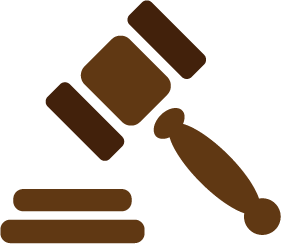Part of using Chapter 13 bankruptcy is that you will be given a repayment plan, where many debts are not completely discharged and you only pay back a portion of what you owe. However, you're likely wondering what will happen if you are unable to pay back the payment plan that was ordered by the bankruptcy court. Here is what you can expect if you suffer another financial hardship.
You Must Seek A Hardship Discharge
If you are unable to make those required payments toward your repayment plan, you'll have to seek out a hardship discharge from the bankruptcy court. This is only allowed in very specific circumstances, and it is a way to have the remainder of that repayment plan discharged so that you do not owe anything. Of course, it may be more difficult to qualify for a hardship discharge than you think.
You Must Prove That Modifications Won't Help You Pay Back Your Debts
The bankruptcy court is only going to consider a hardship discharge if you are in a situation where a modification to the plan will not allow you to make those payments. If you are simply out of work at the moment and need to put a pause on the payments, that would be considered a modification that would allow you to continue paying it off once you were employed again. If you do get a new job that pays less than what you made in the past, then a modification could also be made to lower your monthly payment based on your new salary.
You Must Be Behind In Payments Due To Uncontrollable Circumstances
You won't be able to seek a hardship discharge until you have fallen behind in making payments towards your repayment plan. In addition, the reason for falling behind must be out of your control. This typically means losing your job, but it could also be due to a major hospitalization or life event that caused a major disruption.
You Must Have Paid Back A Minimum Amount Of Debt
Be aware that your payment history will be looked at prior to a hardship discharge, and the bankruptcy court will make sure that the creditors that you owe money to will not end up being worse off than if you originally used Chapter 7 bankruptcy. This means that you may have to make some additional payments to ensure creditors were paid back a minimal amount of debt, and then the hardship discharge will be granted.
To learn more, contact a bankruptcy lawyer.
Share9 February 2021

If your mountain of debt has grown so tremendous that you can't imagine a way out, then you need to contact a bankruptcy attorney. Even though filing bankruptcy can seem like cheating, it is sometimes the only option when you have consumer or medical debt that is consuming your paycheck and then being left unpaid. An attorney can take a look at your finances and recommend a pathway out of debt utilizing one of the several types of bankruptcy available. Learning more about this process can make it seem more approachable. Dig into the articles on this website to get started with that learning.